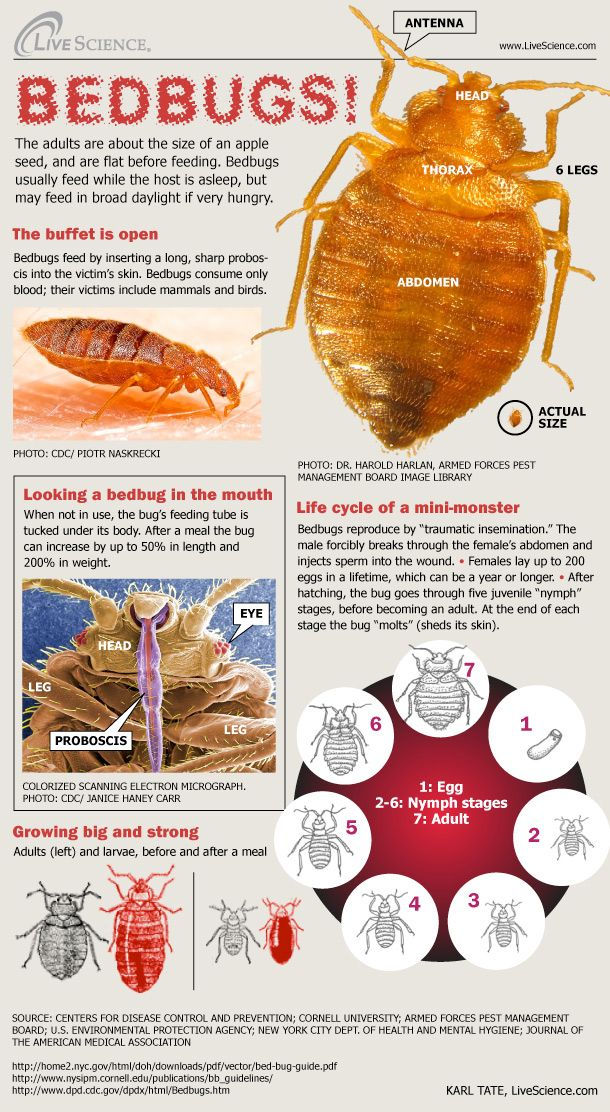What Do You Know? (AKA: another bloodsucker post)
- Chelle Hartzer

- Jun 8, 2021
- 3 min read
The first full week of June is designated as “Bed Bug Awareness Week”. Are you excited?!?! Since the re-emergence of bed bugs in the US in the early 2000’s, there has been a great deal of research. This gives us better information on how to prevent them, detect their presence early, and treat more effectively. Here is a round-up of some fun facts and new research:
Do you know where they came from?
The first evidence of bed bugs comes from a fossilized specimen that is over 3,500 years old. There are references to them in ancient Egyptian writings. That is a huge amount of time to become very proficient at living off humans. While cultural practices (like regularly airing out bedding) and treatments (like arsenic and sulfur) were applied, it wasn’t until the introduction of DDT in 1938 that humans finally took a bite out of bed bugs instead of the other way around. If only the story ended there. However, we know that the bed bugs bit back. With an increase in international travel, the removal of environmentally hazardous pesticides, and people forgetting about them, bed bugs came back and are likely here to stay.
Do you know the facts?
True or false: Bed bugs reproduce quickly?
Depends on your definition of quickly! Compared to a fruit fly that can lay hundreds of eggs in a matter of days, bed bugs lose the race. They will lay up to twelve eggs per day and about 200 over their adult life span. It will take around twelve weeks for them to go from the egg to the adult stage. Compared to an American cockroach that can take a year to develop, that’s pretty quick.
True or false: Bed bugs are in unsanitary situations?
Sure they are in conditions that are dirty and cluttered and unclean. They are also in perfectly clean, neat, uncluttered rooms. It is much easier to find them during inspections when you have less clutter and easier access so they are often found quicker and treated sooner in locations that are “clean”.
True or false: Bed bugs travel on our bodies?
It’s true that once bed bugs feed, they drop off and go find a nice cozy place to hid, off the host. However, anyone who’s been in an infested area knows to check their clothes, their shoes, their pockets even to check for hitchhikers. Those people that spend lots of time in one place are prone to having bed bugs literally on them even when they are not feeding. So in most cases, bed bugs won’t live on our bodies, but in some cases, they can and they can be transported that way.
Do you know what’s new? (and what it means to you!)
Researchers are looking to see if bed bugs will feed off other hosts. Studies have shown they will not feed on our pets or house mice living in our vicinity. What this means: no matter what other mammals may be present, the bed bugs are going after humans and where humans are.
Integrated methods are continuing to prove best. Using an increase in heat, though not enough to kill, makes other treatments work better. What this means: turn on the heat! Warm it up and your other treatments will be more effective. Bonus – essential oils may increase the efficacy of other treatments.
Humidity plays a role as well. Particularly when using dust treatments, lower humidities made dusts more effective. What this means: if you can dry out the area a bit with dehumidifiers or fans, it can increase the success of treatments.
Bed bugs don’t transmit disease… but could they? A recent study showed Rickettsia has been found in bed bugs and earlier, the causative agent of Chagas disease was found to be able to be passed to bed bugs. Many researchers are advocating for more research. What this means: while bed bugs could potentially pick up pathogens, there is no current evidence they are transmitting it.
Bed bugs can kill? In severe enough infestations, bed bugs can cause severe anemia that could lead to death. What this means: don’t let treatments wait!
How are you celebrating this week? Are you looking at how you can prevent, detect, and respond to issues? We can help!
Lagniappe – know someone who needs bed bugs? Send them some!:











Comments